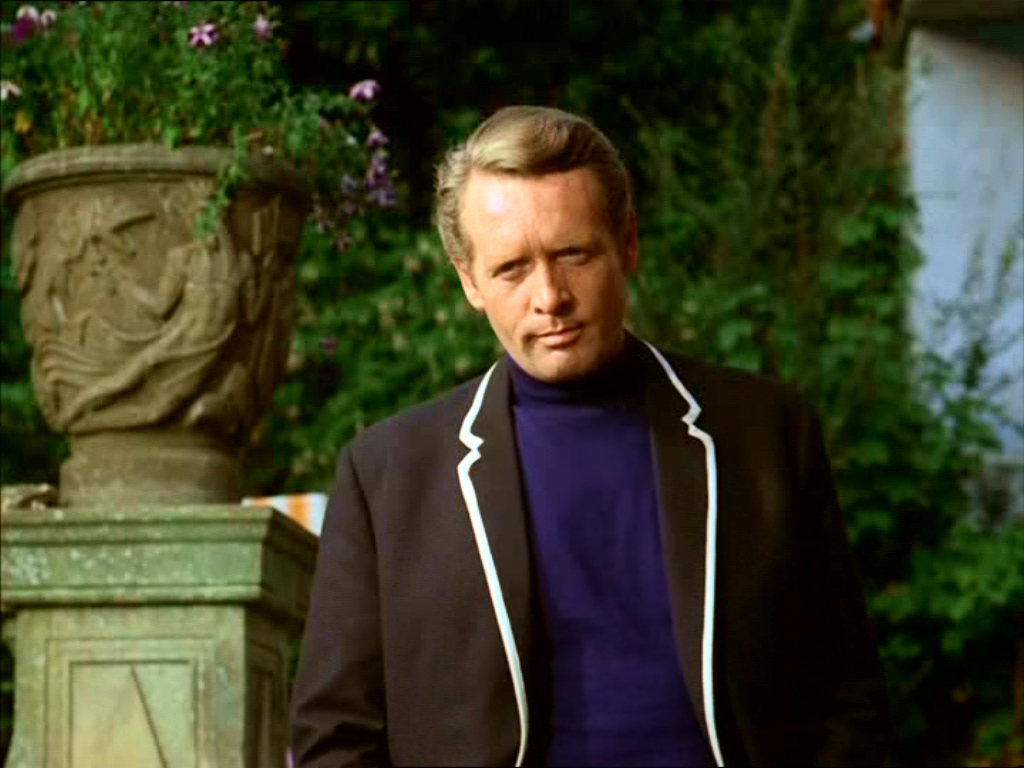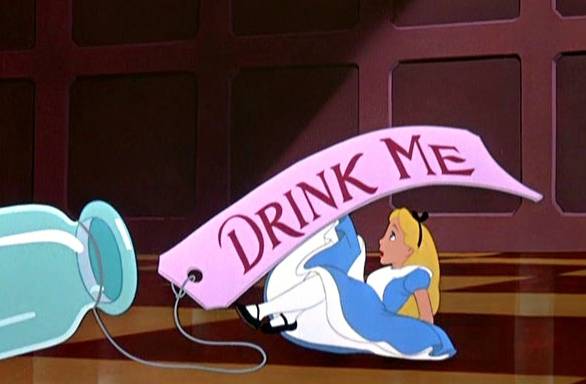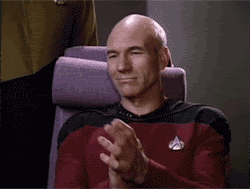I love seeing hypothes.is pop up when I visit :)
- Mar 2025
-
talkingwithmachines.com talkingwithmachines.com
- May 2023
-
impedagogy.com impedagogy.com
-
sometimes
This is vague. I'd like to ask for some specific examples to back up this claim
-
objective analysis
Can it? I'm not sure if we want objectivity anyway, even if it were possible.
-
- Apr 2023
-
literariness.org literariness.org
-
The idea of bricolage produces a new way to talk about, and think about, systems and structures without falling into the trap of trying to build a new stable system out of the ruins of a deconstructed one.
Avoids being 'striated by the state apparatus' in D&G's terms
-
A bricoleur doesn’t care about the purity or stability or ‘truth’ of a system he or she uses, but rather uses what’s there to get a particular job done.
pragmatism
-
pre-existing things together in new ways, and makes do with whatever is at hand.
In CLMooc, we call this remix
-
- Jul 2022
-
impedagogy.com impedagogy.com
-
Related suggestions?
I'd be memorising music in case there is a time that I can only hear the soundtrack 'inside my head'. I'd be memorising things of beauty in case there is a time that I cannot see with my 'outer eye'
-
- May 2022
-
tachesdesens.blogspot.com tachesdesens.blogspot.com
-
serendipity
-
The more you learn, the more you realize how little you know and how much you need to learn.
As Socrates said, the wise man knows how little he knows
-
you, myself or others can gather around one or more of them.

-
My art teacher was a great teacher, he would give me excellent marks and then fail to convince me to do some work.
Is that a great teacher? Doesn't a great teacher motivate you to do some work?
-
- Apr 2022
-
oer.pressbooks.pub oer.pressbooks.pub
-
Jam

Tags
Annotators
URL
-
- Mar 2022
-
impedagogy.com impedagogy.com
-
Could you share your workflow for that or for anything else that has value for you?
Am working on a collaborative post about this with colleagues just now. We will share :)
-
- Oct 2020
-
thecurrent.educatorinnovator.org thecurrent.educatorinnovator.org
-
we succeeded not just because we were dancing to the same tune, but we were constructing shared meaning and getting tuned to the same harmonic.
Community, creed and cultus
-
- May 2020
-
bostonreview.net bostonreview.net
-
Beyond the stark fiscal crisis, we are also in the midst of the biggest online learning experiment in human history,
Experiment dignifies this lurch online too much
-
More than 40 percent of faculty members at all two-year and four-year colleges work part time.
I am hearing a lot of concern from my contingently employed friends.
-
migration of courses and degrees online
I don't see this as troubling. Lots of positives about having learning online (this does not preclude other modes of teachdhing as well).
-
taking a sledgehammer to higher education
I'm not sure of this metaphor. It's more like a quicksand, to me
-
- Mar 2020
-
impedagogy.com impedagogy.com
-
plan your work, work your plan
I love this phrasing. It's so obvious, yet not!
-
- Oct 2019
-
impedagogy.com impedagogy.com
-
writeout.nwp.org writeout.nwp.org
-
DICHOTOMIES
Dichotomies are useful fictions. We learn by comparing what we know. It's when we reify the dichotomies that problems happen.
-
local knowledge serves as the bed-rock in that meaning-making
I think this is important. Bringing one's own context into a multi-cultural conversation is vital. It's how we stop things like Brexit, and Trump, and wars. Imo.
-
- Aug 2019
-
profession.mla.org profession.mla.org
-
The exchange now feels seared into my brain.
There's a moral here for all of us.
-
JASNA
I think we have similar here, with Burns.
-
-
impedagogy.com impedagogy.comDear J…1
-
I am no longer teaching courses that have learning objectives that don’t include teaching the skills necessary to survive in an age of collapse. I think this might be one of those tools to teach those skills.
I would like to hear more about this
-
- Jun 2019
-
educatorinnovator.org educatorinnovator.org
-
“emergent, iterative, collaborative, critical.
This is the definition of CLMOOC that I recognise.
-
design principles
For me, this is the focus. "Design with gaps and holes"
-
- May 2019
-
tachesdesens.blogspot.com tachesdesens.blogspot.com
-
tracing
All of tree logic is a logic of tracing and reproduction
-
Mapping not tracing.
The rhizome is altogether different, a map and not a tracing. Make a map, not a tracing.
-
- Jan 2019
-
impedagogy.com impedagogy.com
-
k.
Clock

-
Annotation
I think it is different. Here I am at the side. You can ignore me and you can hide me (except for the annoying yellow highlight)

-
- Sep 2018
-
burawoy.berkeley.edu burawoy.berkeley.edu
-
couldchallenge the existing order.
Exactly. We need to smash the state apparatus, not try to infiltrate it.

-
Freire might retortthat Bourdieu is focused onthe transmission of the dominant cultureand cannot see beyonda banking model of education.
He might. I might agree. I am not liking Bourdieu

-
with and not for
Yes
-
problem-centered dialogue between teacherand student, in which each learns from the other, the educator too must be educated.
Better.
-
V
Who is this by?
-
- Aug 2018
-
www.theguardian.com www.theguardian.com
-
empathy
Interesting new initiative - or hype? here
-
complexity

-
deliberately confusing

-
longer, denser, more difficult texts

-
deep reading

-
Sherry Turkle
-
-
www.eurodl.org www.eurodl.org
-
and consider the idea that some students (consciously or otherwise) create personas when working online,
-
- Jun 2018
-
www.ncte.org www.ncte.org
-
best
Who is the arbiter of what is the best (rather than which things are good)?

-
- May 2018
-
cogdogblog.com cogdogblog.com
-
I have grown to love the concept I learned from Mia of having an over all shape or major parts of the course outlined as a “spine” but filling in details as we went, rather than committing everything to a detailed syllabus.
This is the difference between a good course and a rhizo-mess. There is an overall direction, but plenty of room for impro by staff and students.
-
-
www.simplypsychology.org www.simplypsychology.org
-
A contemporary application of Vygotsky's theories is "reciprocal teaching," used to improve students' ability to learn from text. In this method, teacher and students collaborate in learning and practicing four key skills: summarizing, questioning, clarifying, and predicting. The teacher's role in the process is reduced over time.
It would be useful to compare this with Laurillard's conversational model
-
-
www.chronicle.com www.chronicle.com
-
If the answer is a multiple choice and/or fill-in-the-blank exam, how much does it matter that students can recall that knowledge offhand?"
Mybe quite a bit if I am a doctor? IDK, am I just being snarky at the English grad here?
-
"If students can Google the answers to your questions, then your questions are crap."
Is that really true in a subject like maths, though?
-
- Apr 2018
-
www.davidtinapple.com www.davidtinapple.com
-
But the fact that a great deal of learning even now seems to happen casually and as a by-product of some other activity defined as work or leisure does not mean that planned learning does not benefit from planned instruction and that both do not stand in need of improvement.
Exactly. How can CLMooc and DS106 help us to improve formal learning
-
although faster if their parents pay attention to them
This is important, though. It's not that there is no role for a teacher even in casual learning.
-
Most skills can be acquired and improved by drills, because skill implies the mastery of definable and predictable behavior
Practice makes perfect

-
futurology.

-
transform each moment of his living into one of learning, sharing, and caring
Actually, I think this aspiration is too demanding. Sometimes I just want to forget the rest of the world and be!

-
educational webs which heighten the opportunity for each one to transform each moment of his living into one of learning, sharing, and caring.
This reminds me of Laura's amazing #ds106 video
-
-
learning.media.mit.edu learning.media.mit.edu
-
Q.0/!2).&&6!$.0:!$&!)&#<(20!B%&)022!4#'!2(52$4#)0K!R
Yes! All too often we are urged to assess the product rather than the process
-
- Oct 2017
-
impedagogy.com impedagogy.com
- Sep 2017
-
tachesdesens.blogspot.com tachesdesens.blogspot.com
-
KNOWLEDGE may BLIND more than it allows us to see.
"Thoughts without intuitions are empty, intuitions without concepts are blind." I. Kant: Critique of Pure Reason, B 75
-
- Jul 2017
-
daily.ds106.us daily.ds106.us
-
creative

-
illustrations

-
information

-
observations

-
ancient

-
annotate

-
observations

-
astronomical

-
via Wikipedia

-
- Jun 2017
-
impedagogy.com impedagogy.com
-
a ‘conversation’
-
‘noise’

-
academic guild chatter

-
My mistake.

-
Conversation is not leading to me practicing digital hospitality.

-
I wanted more deliberate practice.

-
Both? Neither? Signal? Noise?
Haha #4wordstory :P
-
-
tachesdesens.blogspot.com tachesdesens.blogspot.com
-
sorry states

-
Prisoner

-
Prisoners

-
Prisoners

-
-
www.buzzfeed.com www.buzzfeed.com
-
You have to build for the reality we live in, not the one we hope to create.
IDK about this.
-
The problem with connecting everyone on the planet is that a lot of people are assholes.
haha true
-
-
impedagogy.com impedagogy.com
-
#digciz

-
the larger visualization.
I never know what to make of these, but they fascinate me. Often they serve as a reminder to me that noise =/= community
-
Or is lurking one of those known unknowns that we fail to account for, that is impossible to account for?
Aye. How to know if one has appreciative lurkers, or if one is shouting into a void

-
How does this blindspot feel?
HOMAGASO is HARD WORK (but worthwhile sometimes).
-
#4wordstory
I'm playing with 4wordstory Does that mean I am engaged in the #Digciz community? Or am I just piggybacking on their conversations?
-
I will carry on for awhile with #digciz with a measure of leeriness and worldly weariness and some forced cheeriness, hoping that the game is worth the candle.
Yup, likewise. Needs more media for me (I know, that's up to me to sort out).
-
I assume that because someone doesn’t reciprocate, that they are not a good #digciz.
Could be coz they didn't notice, or were too busy, or did not know how to reciprocate
-
- May 2017
-
impedagogy.com impedagogy.com
-
. You can go from n00b to expert and back to n00b in 2 steps.” Nobody needs to be in charge in a mature rhizome.
Well, no one person is always in charge, but particular folk take charge as and when. Like anarchy. No ruler, self made rules.
-
-
mailchi.mp mailchi.mp
-
assemblage of information technologies duct-taped together with a mess of protocols
That's describing our online personas
-
highly heterogeneous
Yup - important to note that they are not (for D&G) actually one botanical structure
-
Rhizomes aren't just about information. They are also about computational capabilities, distribution capabilities, relationships, trust, and permission architectures.
They're about a criss crossing of similarities. Deleuze would HATE me quoting Wittgenstein at him
-
arborescence
I don't think that trees are the real target - at least, not "real" trees. It's truth trees Deleuze hates - with their branching dichotomies and black and white ayes or nays.
-
-
dogtrax.edublogs.org dogtrax.edublogs.org
-
This particular writer used a web script to shut down Hypothesis and other annotation tools at their site.
I'm struggling with this one. What's to stop anybody copying and pasting the whole of the original (assuming it is licenced in such as way as to allow that) into a space where it can be annotated? That seems to be an option that is open to any of us, and if it were done that would leave the original author with even less control over what happens in the margins than they have now. This seems to be ok, as far as I can tell from the original, so I feel that I am missing the point about why this author dies not want marginalia in their space.
-
- Apr 2017
-
hybridpedagogy.org hybridpedagogy.org
-
Academics can assist citizens by making their specific area of expertise more accessible and understandable to a wider audience.
And by engaging in things like Bonnie Stewart's Antagonish 2
-
- Feb 2017
-
www.digitalrhetoriccollaborative.org www.digitalrhetoriccollaborative.org
-
Whereas McCloud’s definition excludes single-panel comics, Harvey’s excludes wordless comics like Shaun Tan’s The Arrival and Thomas Ott’s Cinema Panopticum, along with many other examples.
That's the problem with definitions. Family resemblance
-
Definitions should pin an object down, put a finis around it.
Here Wittgenstein interjects to remind us of the problems of definitions - family resemblance instead?
-
Marshall McLuhan saw in this moment comics’ participatory power—the reader is forced to interact with the comic more consciously than with a traditional text.
Ping! This is probably why I understand more from the comic books about philosophy when I am looking at a new subject.
-
-
www.digitalrhetoriccollaborative.org www.digitalrhetoriccollaborative.org
-
visual and verbal modes have become inextricable
interesting
-
Meaning is created through connections.
Multiplicities of meanings
-
-
www.digitalrhetoriccollaborative.org www.digitalrhetoriccollaborative.org
-
I stress these differences not to disparage Sousanis’s book, which is innovative, fascinating, and much more of a “pure” comic than my own.
Similar, yet different, metaphors
-
In his recent comic monograph Unflattening, Nick Sousanis employs the metaphor of parallax vision to discuss the relationship between image and text in comics (31)
I wondered if Sousanis would be referenced
-
-
www.digitalrhetoriccollaborative.org www.digitalrhetoriccollaborative.org
-
lifeline for those uncomfortably adrift.
Lifelines, scaffolding - are there more positive metaphors to describe this method?
-
Of course, this can leave readers with the feeling of being thrown in the deep end (or even the ocean, to continue Deleuze's example).
What would it be like if we taught like this?
-
After a bit of testing, I realized that what readers wanted wasn't more organization, but more of a feeling of organization. This difference is subtle but important.
Very important
-
Based on comments from my reviewers, it was clear that the initial draft of this book felt disorganized. In my own mind it was actually a little too organized (especially for something with rhiz- in the title)
I think that things can be organised but complex - maybe organised is the wrong word, but I often think of fractals when I think of rhizomes. My contrast is with things that are messy - like a child eating spaghetti.
But I do agree about not imposing one order on a rhizome, and allowing for other tracings.
-
Even the ultimate antidogmatic image, the rhizome, can become dogmatic.
Yes.
-
-
www.digitalrhetoriccollaborative.org www.digitalrhetoriccollaborative.org
-
“Perhaps we must say that all progress is made by and in striated space, but all becoming occurs in smooth space.” (Deleuze and Guattari, A Thousand Plateaus 486)
I want to remember this
-
-
www.digitalrhetoriccollaborative.org www.digitalrhetoriccollaborative.org
-
We assess only those features that we really don’t care about: mechanics, structure, how much it looks like the platonic ideal of an essay in my head.
Exactly
-
the teacher will be hard-pressed to form rigid evaluative guidelines for assignments that experiment, whose very goal it is to break out of academic prose.
Yes. This is the problem with assessment - often we assess what is measurable, codifiable, rather than assessing the learning itself.
-
we sanitize them and make them just more academic discourse.*
Do we? What when we use punk in order to articulate our disgust at the social order? What when we use punk as part of a call for direct action? It might begin in a classroom, but imo it can be way more than "just" academic discource.
-
Choosing a medium is a rhetorical decision, and one Shipka advises her students to make carefully.
This has huge implications for educators. How is the message altered when it is delivered via a VLE, via social media ... etc.?
-
While many are content to see multimodal composition as a new phenomenon, Shipka exposes its secret history, with motivations and questions lurking in Quintilian and a robust literature arising in the 1970s and 80s coming out of calls for more expressive writing.
Well, yes - of course this is not a new thing. Illustrated texts are multi modal aren't they?
-
-
www.digitalrhetoriccollaborative.org www.digitalrhetoriccollaborative.org
-
muddle
"A rhizome has no beginning or end; it is always in the middle, between things, interbeing, intermezzo" ATP p25 http://projectlamar.com/media/A-Thousand-Plateaus.pdf
-
-
www.digitalrhetoriccollaborative.org www.digitalrhetoriccollaborative.org
-
Rhizcomics
I notice you pronounce "rhizcomics" with a short "i" as in "is", rather than with a long "i" as in "eye" - which is how rhizome is pronounced (and how Deleuze pronounces it).
-
- Oct 2016
-
impedagogy.com impedagogy.com
-
Everything you know might be wrong
-
their song by God
-
to even broach the idea of silence
-
sing the bloody hell out of your song
-
- Aug 2016
-
hackpad.com hackpad.com
-
high-pilèd books

-
Two vast and trunkless legs of stone

-
- Jul 2016
-
impedagogy.com impedagogy.com
-
trator
Illustrator as teacher
-
Illustrator
Better than this, I hope

-
Teacher as Illustrator
Kevin, of course, already does this with his comics
-
-
hybridpedagogy.org hybridpedagogy.org
-
I know

-
This indicated student ownership of the story and meant my task of helping with the structure was nearly done
When the student is ready, the teacher disappears :)
-
unimpeded brainstorm

-
Since this was their project, first person it would be.
I love how you allowed them to learn this for themselves.

-
- Jun 2016
-
rhetcompnow.com rhetcompnow.com
-
provides.
The GDc says: "You need permission
Want in? Ask the owner for access, or switch to an account with permission. Learn more"
-
-
kopeckaci.wordpress.com kopeckaci.wordpress.com
-
light bulb

-
eye opener

-
"Thoughts without intuitions are empty, intuitions without concepts are blind." Kant 1st Critique B75
-
- May 2016
-
hybridpedagogy.org hybridpedagogy.org
-
Critical Digital Pedagogy
Is this one "thing", or is it an individual attitude? Is it something that can be defined, or is it something that can just be pointed towards, caught out of the corner of one's eye?
-
discovery
Really? So it is not constructivist then?
-
-
tachesdesens.blogspot.com tachesdesens.blogspot.com
-
How could anyone depict transcendence
I don't know if anyone can. It could be ineffable.

-
emerged
Emergence is not always pretty https://www.youtube.com/watch?v=lCNISGsuAYo
-
Emergent
Emergence takes time https://www.youtube.com/watch?v=Gt-5lS9hJFA
-
-
impedagogy.com impedagogy.com
-
tired
I feel like the white rabbit.
-
Cares
I care

-
-
impedagogy.com impedagogy.com
-
crows in the hedgerows

-
dancing

-
an origami universe
-
fold

-
wiring and firing

-
flattened

-
-
tachesdesens.blogspot.com tachesdesens.blogspot.com
-
drunk

-
chortle)

-
rhizomatic

-
uncharted

-
-
impedagogy.com impedagogy.com
-
zeega
![] (https://media.giphy.com/media/3o6MbgktNOTZWhNlni/giphy.gif)
-
Anybody want to annotate it with me? Go here if you do.
That's wanting me to log into LinkedIn. I don't want to log into Linkedin :(
-
close reading

-
value text

-
-
kris.shaffermusic.com kris.shaffermusic.com
-
creating a WordPress plugin
That would be super wonderful
-
(Someone please
I believe that downloading all one's annotations is on their roadmap - so fingers crossed what you suggest will be possible in the future.
-
- Apr 2016
-
impedagogy.com impedagogy.com
-
The crow calls for help

-
-
onewheeljoe.blogspot.com onewheeljoe.blogspot.com
-
squeeze

-
too depressing to think about

-
Surely our population in Capacity is bigger than 3!

-
Shrank.

-
-
Local file Local file
-
peerlearningandcooperativelearnin
Look at definitions
-
processofjointactivityitself.Rather,itiscreatedinthecourseofcollaboration:"Weproposethatanessentialfeatureoflearningisthatitcreatesthezoneofproximaldevelopment;thatis,learningawakensavarietyofdevelopmentalprocessesthatareabletooperateonlywhenthechildisinteractingwithpeopleinhisenvironmentandincollaborationwithhispeers"(Vygotsky,1978,p.90
learning creates ZPD
-
peercollaborationcannotignorewhateachindividualbringstothecollaborativeproces
Cannot depersonalise
-
seofpsychologicaltools
Think about what these would be
-
dwellssolelyoninterpersonalaspects,relyingontheconceptofthezoneofproximaldevelopment,reducesthetheoryinawaythatseriouslydetractsfromitsvalue
See the paragraph above this. It's the interweaving of everything
-
Vygotsky-inspiredresearchintopeercollaborativeprob-lemsolvinghasbeenlessplentifulbecauseVygotsky,unlikePiaget(especiallyinhisworkonmoralreasoning),didnotemphasizetheparticularbenefitsofpeercollaborationandfocusedmoreonadult-childinteraction.Vygotsky'stheory,however,hastremendousimplicationsforourunderstandingofpeercollaboration
I can extend this to peer (many - many)
-
-
impedagogy.com impedagogy.com
-
Teaching and schooling are the problem
All types of teaching and schooling? Or just the model that the neo-liberal state has foisted upon us?
-
iatrogenic
Had to look this up
-
-
impedagogy.com impedagogy.com
-
Internet is still the wild west
And let's hope it aye stays thus

-
-
impedagogy.com impedagogy.comFraud!9
-
fall

-
fraud
-
fraud.

-
fraud.

-
fraud.
-
fraud

-
fraud.
-
fraud
 (not you, Terry)
(not you, Terry) -
Fraud!
Simon shared this article with me earlier. It resonates with this for me.
-
-
gamesandlearning.wordpress.com gamesandlearning.wordpress.com
-
PAHSIT
Huge congrats

-
-
impedagogy.com impedagogy.com
-
The Wind in the Willows
-
piper at the gates of dawn.
-
-
impedagogy.com impedagogy.com
-
am so happy that this pop-up was just that–one and done and lots of fun.
I'm sorry I missed it -bad week for me. I'd not realised how little I'd be able to get online while I was away.
-
-
onewheeljoe.blogspot.com onewheeljoe.blogspot.com
-
For a MOOC, the impact was pretty small
I'm sorry I couldn't join in. I'd not realised how little I'd be able to get online while I was away last week
-
- Mar 2016
-
elnamortensen1.wordpress.com elnamortensen1.wordpress.com
-
community of practice
Not mentioned in the ebook at all
-
-
thewalrus.ca thewalrus.caPass, Fail17
-
They can get an A without ever opening a book.
Then that's your fault, Srigley, for not making assessment authentic
-
beautiful

-
two plus two equals five
And when have we been asked to do this?

-
ennobling powers of the humanities and the arts.
Pfff, that's just a bad argument. I can justify my studies in philosophy as training me in critical thinking, bullshit detection and writing. Other subjects can do likewise. Not this ennobling nonsense Srigley pontificates about.

-
If a sessional instructor complains publicly about her institution or its declining standards, she will do so only once.
Evidence for this?
-
a mirror.

-
proposed
Did this ever go ahead?
-
heard of an instructor
Pfff Where is this instructor?
-
(serious study of texts and historical events, honest lectures with real content)

-
he Disneyfication of your course offerings (Religious Studies 211—“The Whore of North Africa: Augustine Gone Wild in Carthage”)
But this is not a real example, it's just poor argument.
-
t less and less economic earning power
Correlation is not a cause.
-
Rather than learning freely and excelling, they’ve become shrewd managers of their own careers
There always have been folk like this. Where's the evidence for any increase?
-
2,300 students enrolled at a range of four-year colleges and universities in the United States. They found that 5 percent of students failed to show any statistically significant improvement in critical thinking, complex reasoning, and written communication after the first two years of college, and 36 percent showed no progress after four years.
Tiny study, not enough detail to decide if relevant. Suspect cherry picking again
-
Undereducated instructors are compromising the value of your sons’ and daughters’ educations

-
knows next to nothing
Sridley's conflating a lack of PhD with knowing next to nothing. Snob.
-
Second, they are professionally vulnerable and therefore remain mostly silent about critical matters
Is there evidence to support this assertion?
-
minimum requirement for teaching undergraduates is a graduate degree in the relevant discipline being taught.
Why?
-


